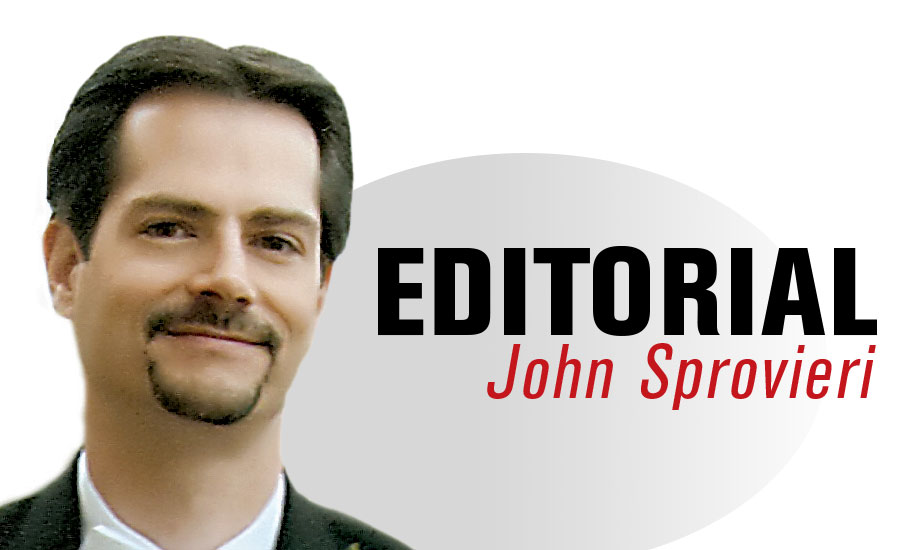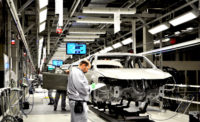In July, the UAW opened contract talks with the Detroit Three automakers. The union’s current four-year contracts with Ford, GM and Fiat Chrysler expire Sept. 14.
So far, so good. In his first official update, UAW vice president James Settles Jr. said negotiations are still in the “honeymoon stage.” The UAW has stated that job security and pay increases are its top two priorities. The union made deep concessions during the Great Recession, and it would like to end a two-tier pay system in which younger workers are paid less than veterans doing the same job.
Will they get what they want? We’ll see. On the plus side, the auto industry is booming. Collectively, foreign and domestic OEMs have sold just over 10 million vehicles in the U.S. through the first seven months of 2015, a 4.5 percent increase compared with the same period in 2014. At that rate, total sales could top 17.2 million vehicles by the end of the year. Sales haven’t been that high in a decade.
The Detroit Three account for half of this year’s vehicle sales. As a result, revenues and profits are up, and the Detroit Three are hiring. Since 2011, worldwide employment is up 4 percent at GM, 14 percent at Ford, and 18 percent at Fiat Chrysler.
The automakers are also investing in production. In May, GM announced plans to invest $5.4 billion at its U.S. plants over the next three years. Fiat Chrysler is spending $166 million to install three new lines at its stamping plant in Sterling Heights, MI.
The union is growing right along with the automakers. The UAW has seen its membership grow five straight years. It has now eclipsed 400,000 members for the first time since 2008. The UAW represents some 137,000 workers at the Detroit Three, up from 112,000 in 2011.
So much for the good news. Barely a week before talks began, Ford drew the UAW’s ire when it announced that it would shift production of the Focus and C-Max models from Michigan to Mexico. Ford is reportedly looking to invest $2.5 billion in two assembly plants in Mexico. (Republican presidential candidate Donald Trump has threatened Ford with punitive taxes if it follows through.)
The UAW was placated somewhat last month, when Ford said it would shift production of F-650 and F-750 commercial trucks from Mexico to Avon Lake, OH, securing 1,000 union jobs.
The drama underscores the tightrope both sides will have to walk. The Detroit Three should share the wealth with workers. (The OEMs netted more than $7.9 billion in profit last year.) However, they can’t afford to get saddled with excessive labor costs when lean times invariably return. At the same time, the UAW can’t push the OEMs too hard, knowing that Mexico would be all too happy to get extra work.
“We don’t negotiate for today. We negotiate for the future,” says Settles.
“We are not negotiating to try to put anybody out of business.” Amen.




